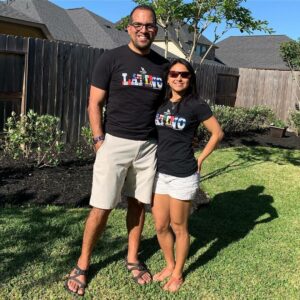- Part 1: Friends
- Part 2: Money
- Part 3: Parents
- Schedule Conflicts
- Fear Of The Unknown
Fifteen years ago Young Life leaders generally had much better relationships with the parents of their high school friends. Why? Because teenagers didn’t own cell phones, so in order to contact them a leader had to call the home phone. This often resulted in conversations with parents.
One key in getting your high school friends to camp is to not only invest in a relationship with them, but also with their parents. Not many parents will quickly shell out hundreds of dollars to ship their kid off with someone they don’t know. Most parents would love to know you better, even if they have not made any effort to do so. If we want to take their children to camp we must step out of our comfort zones and build relationships with moms and dads.
Keys To Interacting With Parents
- Respect. As a general rule, refer to them as Mr. or Mrs. unless you are married, a parent yourself, or over 25. If they give you permission to call them by their first name, go with that.
- Call Instead Of Text. Calling communicates that you are a responsible adult whereas a text message appears less confident and more adolescent.
- Present Yourself As An Adult, even if you’re only 19. Realize they may call your phone and get your voice mail. Will the greeting they hear lead them to trust you more or think of you as irresponsible? When they facebook stalk you, what pictures will they see? When a parent snoops in their teenager’s text messages, what will the texts you wrote communicate about you?
- Know Your Stuff. Parents will want details about camp. Do you have a fundraising plan? Do you know what they’ll need to bring? Do you know how to describe a typical day at camp, or the sleeping and bathroom situations?
- Predict Their Concerns And Prepare Answers. Last week I called a dad to ask if his son could come to camp. He told me that he couldn’t trust his son to be away from home and needed to keep him on lock down this summer. I promised him that his son, other than using the bathroom, would always be with a leader. I explained our value of leader-centered camping: we’re not just chaperones letting kids roam around, but adult friends seizing every opportunity to share life with our friends.
- Cast Vision. Describe your hopes for the trip and for their child. Tell them about your own experience and what influenced you in becoming a YL leader. Speak to the ways you have seen camp impact kids in the past and the potential you see in their child.
- Know When To Stop Pushing. Getting their kid to camp is not worth it if it hurts your relationship with them. Respect them enough to allow them to make the decision. After all, they are the parent, we are not. Here’s a related post from last year on ‘The Danger of Preying.’
What have you learned about interacting with parents? Please comment below.




